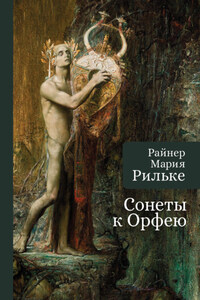THE APOTHEOSIS OF THE REVEREND MR. SPANGLER
I
Miss Ellen Baily kept school in the brick basement of her old frame house on Main Street.
The children used to come up a flagstone path to the side door, and then step down two steps into an entry. Two rooms opened on this entry; in one the children sat at small, battered desks and studied; in the other Miss Baily heard their lessons, sitting at a table covered with a red cloth, which had a white Grecian fret for a border and smelled of crumbs. On the wall behind her was a faded print of "Belshazzar's Feast"; in those days this was probably the only feasting the room ever saw – although on a thin-legged sideboard there were two decanters (empty) and a silver-wire cake-basket which held always three apples. Both rooms looked out on the garden – the garden and, in fine weather, Mr. David Baily! … Ah, me – what it was, in the dreary stretches of mental arithmetic, to look across the flower-beds and see Mr. David – tall and dark and melancholy – pacing up and down, sometimes with a rake, oftener with empty hands; always with vague, beautiful eyes fixed on some inner vision of heart-broken memory. Miss Ellen's pupils were confident of this vision because of a tombstone in the burial-ground which recorded the death of Maria Hastings, at the romantic age of seventeen; and, as everybody in Old Chester knew, Mr. Baily had been in love with this same seventeen-year-old Maria. To be sure, it was thirty years ago; but that does not make any difference, "in real love," as any school-girl can tell you. So, when David Baily paced up and down the garden paths or sat in the sunshine under the big larch we all knew that he was thinking of his bereavement.
In the opinion of the older girls, grief had wrecked Mr. David's life; he had intended to be a clergyman, but had left the theological school because his eyes gave out. "He cried himself nearly blind," the girls told each other with great satisfaction. After that he tried one occupation after another, but somehow failed in each; which was proof of a delicacy of constitution induced by sorrow. Furthermore, he seemed pursued by a cruel fortune – "Fate," the girls called it. Elderly, unromantic Old Chester did not use this fine word, but it admitted pursuing disaster.
For instance: there was the time that David undertook the charge of a private library in Upper Chester, and three months afterwards the owner sold it! Then Mr. Hays found a job for him, and just as he was going to work he was laid up with rheumatism. And again Tom Dilworth got him a place as assistant book-keeper; and David, after innumerable tangles on his balance-sheet, was obliged to say, frankly, that he had no head for figures. But he was willing to do anything else – "any honest work that is not menial," he said, earnestly. And Tom said, why, yes, of course, only he'd be darned if he knew what to suggest. But he added, in conjugal privacy, that David ought to be hided for not turning his hand to something. "Why doesn't he try boot-blacking? Only, I suppose, he'd say he couldn't make the change correctly. He doesn't know whether two and two make five or three – like our Ned."
"Why, they make four, Tom," said Mrs. Dilworth. And Thomas stared at her, and said, "You don't say so!"
There had been no end of such happenings; "and none of them my brother's fault," Miss Ellen told the sympathetic older girls, who glanced sideways at Mr. David and wished that they might die and be mourned as Mr. David mourned Maria.
The fact was, the habit of failure had fastened upon poor David; and in the days when Miss Ellen's school was in its prime (before the new people told our parents that her teaching was absurdly inadequate), he was depending on his sister for his bread-and-butter. That Miss Ellen supported him never troubled the romantic souls of Miss Ellen's pupils any more than it troubled Miss Ellen – or Mr. David. "Why shouldn't she?" the girls would have demanded if any such rudely practical question had been asked; "he is so delicate, and he has a broken heart!" So that was how it happened that the pupils were able to have palpitating glimpses of him, walking listlessly about the garden, or dozing in a sunny window over an old magazine, or doing some pottering bit of carpentering for Miss Ellen, but never losing his good looks or the grieved melancholy of his expression.
Miss Ellen had been teaching for twenty years.
It is useless to deny that, unless one has a genius for imparting knowledge, teaching is a drudgery. It was drudgery to Ellen Baily, but she never slighted it on that account. She was conscientious about the number of feet in the highest mountain in the world; she saw to it that her pupils could repeat the sovereigns of England backward. Besides these fundamentals, the older girls had Natural Philosophy every Friday; it was not, perhaps, necessary that young ladies should know that the air was composed of two gases (the girls who had travelled and seen the lighted streets of towns knew what gas was), nor that rubbing a cat's fur the wrong way in the dark would produce electric sparks – such things were not necessary. But they were interesting, and, as Mrs. Barkley said, if they did not go too far and lead to scepticism, they would do no harm. However, Miss Ellen counteracted any sceptical tendencies by reading aloud, every Saturday morning, Bishop Cummings on the Revelation, so that even Dr. Lavendar was not wiser than Miss Ellen's girls as to what St. John meant by "a time, and a time, and a half of a time," or who the four beasts full of eyes before and behind stood for. For accomplishments, there was fine sewing every Wednesday afternoon; and on Mondays, with sharply pointed pencils, we copied trees and houses from neat little prints; also, we had lessons upon the piano-forte, so there was not one of us who, when she left Miss Ellen's, could not play at least three pieces, viz., "The Starlight Valse," "The Maiden's Prayer," and "The Last Rose of Summer."









